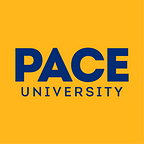Today’s Liberal Arts: Traditional Competencies Remain Highly Valued in a STEM World
Earning a liberal arts degree is a pathway to financial and personal success.
By Nira Herrmann, PhD
As the Dean of Dyson College of Arts and Sciences at Pace University, parents often ask me what the future will hold for a student in our majors. My response is always positive. Liberal arts programs are relevant to today’s job market: they provide students with multiple opportunities to learn how to synthesize, reflect and critically analyze situations; be innovative, creative, and collaborative; think deeply about the human context; as well as devise solutions to problems — skills that are transferable to every field of employment. Liberal arts majors are successfully employed across all industry sectors, and many rise to the C suite, often with a graduate degree in hand.
In addition, the liberal arts form the core of most general education requirements since every engineer, financial analyst, software developer, program analyst, scientist, business or technology manager, or CEO must possess these skills to be effective, as well.
At Pace University, our programs uniquely blend theoretical learning in the classroom with real-world experiences, through internships, research collaborations, civic engagement and co-curricular activities where students sharpen their interpretive, analytical and contextual skills, regardless of their major. They learn how to think — a key component to a rewarding, successful career.
A recent study, Liberal Arts Graduates and Employment: Setting the Record Straight, conducted by the Association of American Colleges and Universities and the National Center for Higher Education Management Systems, found that at peak earning ages, graduates with a bachelor’s degree in humanities or social sciences earn more than those with professional or pre-professional degrees do. In addition, liberal arts programs were found to provide a solid foundation for long-term employment and career success. The report compares earnings trajectories and career pathways for liberal arts majors with those majoring in science and mathematics, engineering, and professional or pre-professional fields like business or education.
The successful outcomes for Pace alumni and students demonstrate the value of the liberal arts as found in this study. In recent years, more than 100 Westchester companies have employed Pace’s liberal arts students and alumni in jobs and internships. Our alumni are working for Westchester County Department of Labs and Research, Westchester Medical Center, Westchester County District Attorney’s Office, and New York Life Insurance Company. Our students participated in hundreds of internships at companies such as RNN, Westchester Magazine, NewYork-Presbyterian Hospital, the Better Business Bureau, and Cintas Corporation, where they have put theory to practice as part of their Pace Path, a program that integrates in-class and experiential learning throughout a student’s time at Pace. Family Services of Westchester, United States Federal Probation, and St. Vincent’s Hospital have offered full-time jobs to Pace liberal arts interns.
Our liberal arts students and alumni give back the Westchester community in a big way. Through Dyson College’s civic engagement courses, students get first-hand experiences serving the needs of the community and develop an appreciation of their ability to work with others to bring about positive outcomes in a democratic society. The richness of the experience cannot be overstated. Since 2016, 550 liberal arts students have participated in giving back to the Westchester community through this unique learning experience. In a testament to how impactful these courses are, some of our students have completed more than one course, further amplifying the commitment they have to Westchester.
Dyson’s Media, Communications, and Visual Arts (MCVA) department is a prime example of one of our leading-edge liberal arts programs that blends classroom learning with practical experience. Of course, every MCVA major (Communications, Public Relations, Digital Journalism, and Digital Cinema and Filmmaking) takes courses in communications, social media, content development, storytelling, and writing. They also get hands-on experience with video and camera equipment, video editing, editing and inserting graphics on the fly during live broadcasts through our on-campus facilities, which include a recording studio, a TV studio with a complete three-camera setup, teleprompters, news desk, and tri-caster. In addition, every student completes an internship, with most completing two or three, after discovering where their interests in media lie. Students have had internships with networks such as NBC, CBS, The CW, and CNN among others, and are prepared to enter the field by creating a reel of tangible work while completing their degree.
As you see, the liberal arts coupled with strong experiential opportunities and a commitment to learning lead to successful outcomes. We are proud to contribute to Westchester County’s businesses and community through the achievements of our alumni and students.
Stay up-to-date with the Dean. Follow Dean Herrmann on Twitter @PaceUDysonDean.
